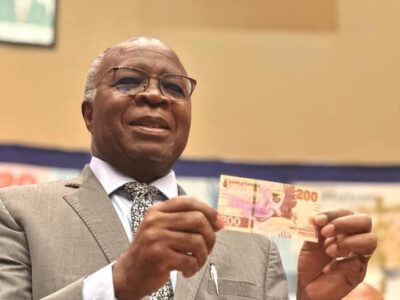The Jesuit Centre for Theological Reflection (JCTR) has urged the Zambian government to disclose the budget and financial plans for the newly announced currency upgrade.
The Bank of Zambia had revealed the introduction of six new banknotes – K500, K200, K100, K50, K20, and K10 – and six new coins – K5, K2, K1, 50N, 10N, and 5N.
In a statement issued in Lusaka on Tuesday, JCTR’s Social and Economic Development Programme Manager, Edward Musosha, emphasized that currency changes incur substantial costs, including production, distribution, public awareness campaigns, and financial system updates.
Musosha pointed out that the Ministry of Finance and National Planning had not disclosed the budget for the currency upgrade, raising concerns over adherence to Zambia’s Public Finance Management laws.
“Transparency in public spending is crucial to ensuring responsible stewardship, which guarantees that resources are managed in ways that benefit the community, especially the most vulnerable,” Musosha said.
He stressed that transparency would ensure funds were not diverted from essential social services.
While recognizing the Bank of Zambia’s efforts to modernize the currency, Musosha expressed concerns about the potential economic and social impacts, particularly on low-income communities.
He also noted that the transition could cause confusion, especially among individuals with limited financial literacy, as revealed in the 2020 FinScope survey.
“Transactional errors and financial losses could disproportionately affect vulnerable groups, such as social cash transfer recipients,” Musosha said.
Musosha acknowledged that currency upgrades did not inherently lead to inflation but argued that public perception could influence economic behavior.
The introduction of higher denominations like the K500 and K200 may be perceived as a sign of economic instability, potentially leading to price increases.
“The Bank of Zambia must address inflationary fears with clear communication,” Musosha advised, adding that the informal sector, which employs over 80 percent of Zambia’s workforce, may struggle with the transition.
He highlighted that many traders operate on slim margins and could face difficulties adapting to the new currency format, increasing the likelihood of transactional disruptions.
Musosha also called for a comprehensive, multilingual educational campaign on the new currency system, particularly targeting rural areas and low-income communities.
“This initiative will ensure that every citizen, regardless of socioeconomic status, has the information needed to navigate these changes, which is a fundamental aspect of the Common Good,” he stated.
WARNING! All rights reserved. This material, and other digital content on this website, may not be reproduced, published, broadcast, rewritten or redistributed in whole or in part without prior express permission from ZAMBIA MONITOR.












Comments